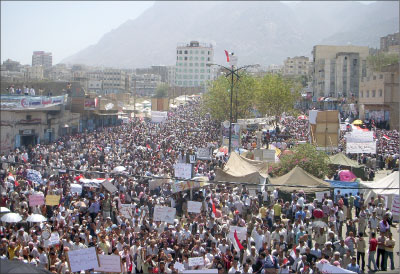Iran Feature: A Middle Class on Edge (Worth)
 >One measure of the profound anxiety now coursing through Iranian society can be seen on Manouchehri Street, a winding lane at the heart of this city where furtive crowds of men gather every day like drug dealers to buy and sell American dollars.
>One measure of the profound anxiety now coursing through Iranian society can be seen on Manouchehri Street, a winding lane at the heart of this city where furtive crowds of men gather every day like drug dealers to buy and sell American dollars.
The government has raised the official exchange rate and sent police into the streets to stop the black marketeers, but with confidence in Iran’s own currency, the rial, collapsing by the day, the trade goes on.
“Am I afraid of the police? Sure, but I need the money,” said Hamid, a heavyset construction engineer who was standing by a muddy patch of greenery amid a crowd of other illicit currency traders here. “Food prices are going up, and my salary is not enough.” Glancing nervously around him, he added that he had converted almost all of his assets into dollars. Like many Iranians, he had also stockpiled months’ worth of rice and other staples.

 Tuesday, February 7, 2012 at 9:18
Tuesday, February 7, 2012 at 9:18

